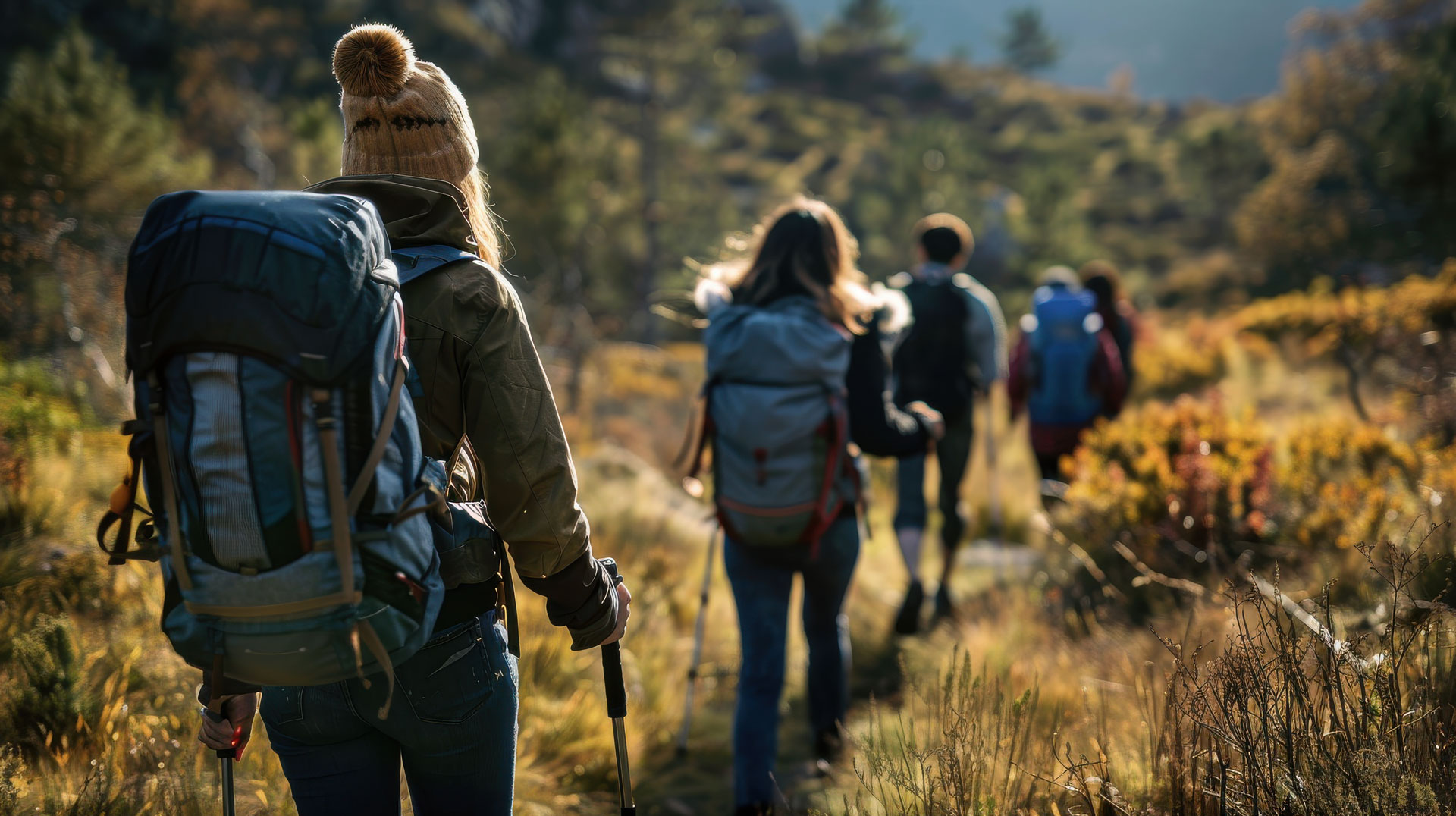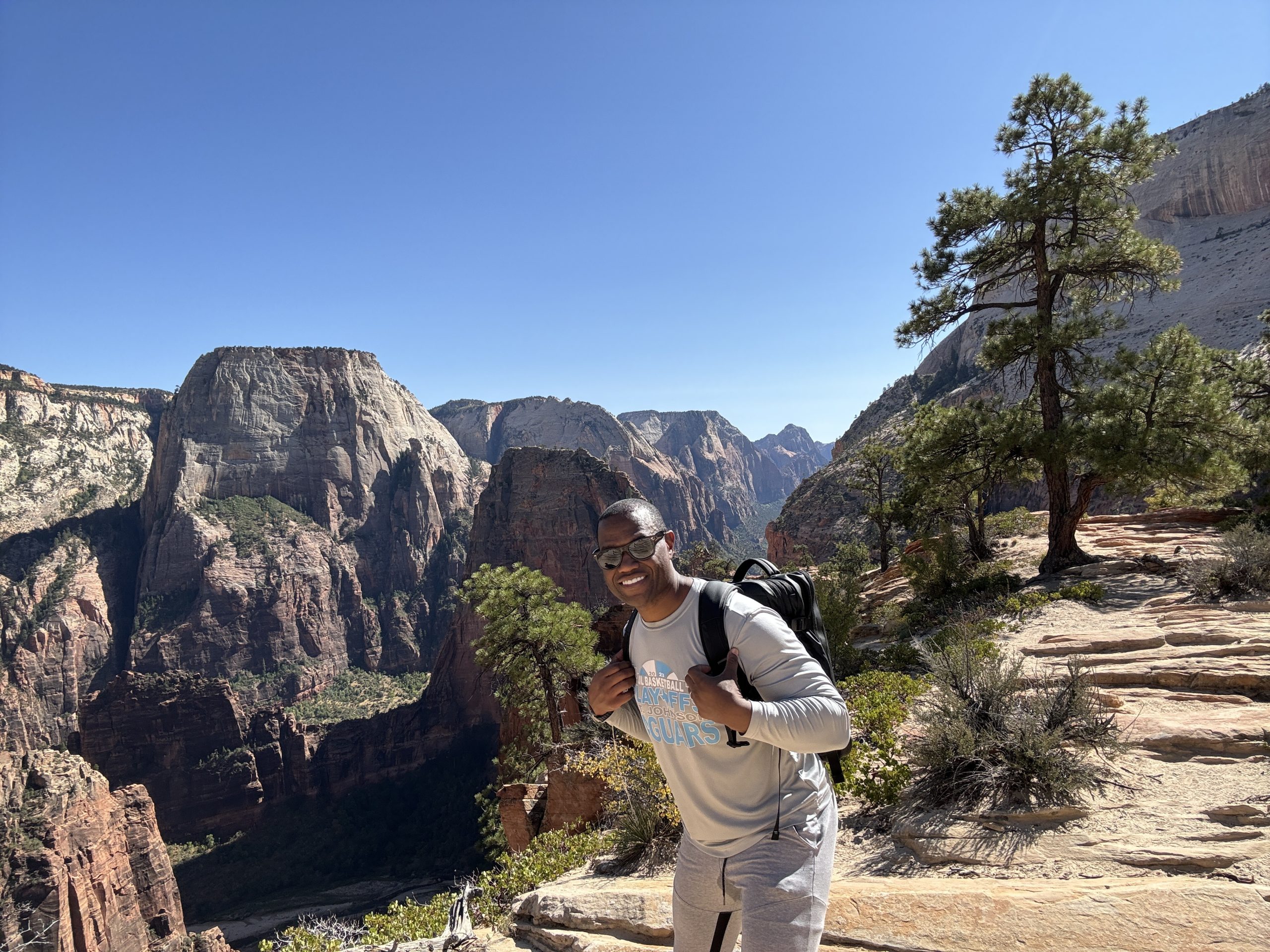Planning for a hiking trip? Hiking is an excellent activity that is fun, healthy, and practicable since everyone enjoys a good walk in the outdoors. But before starting your hiking journey, first-timers should know a couple of things about hiking. This blog will provide a detailed guide on hiking tips for beginners along with the benefits of hiking.
Benefits Of Hiking
While we get to know about the things important for hiking it is also crucial to understand the benefits of hiking. Hiking is a type of activity that not only keeps us physically fit but also helps us connect with nature. It works in developing social connections as a human and also helps us to find peace in a calm environment.
Physical Health Benefits:
Physical exercise is already a proven factor for the development of our body and hiking is one of them. Hiking not only stimulates the flow of blood in our body but also gives strong support to our cardiovascular system. It helps in providing stability to our leg muscles and ligaments. Hiking helps to increase stamina and keeps you physically fit.
Mental Health Benefits:
Taking some time in the natural environment is a great way of handling stress. Researchers have noticed that individuals who take time in the natural environment or take on strenuous activities, such as hill climbing, are more likely to have healthy minds. Hiking reduces the level of anxiety and depression and helps us to control mental fatigue providing calmness to the uncertainty present in the mind.
The Essential Hiking Kit

It is always very important to have the right gear for a hike, especially for those just starting. Here’s a simple list of what you’ll need for a fun day out on the trails:
1. Footwear
Choosing the proper shoe and boot design is a must. Ideal shoes or boots for hiking are those that provide support, traction, and comfort. If the trail is easy, use light hiking shoes, the difficult trails require good quality and waterproof footwear, which means that you will likely need sturdy boots. Try to wear your shoes a little before the first hike to reduce the chance of getting blisters on your feet.
2. Dress in Layers
By layering your clothes you will be ready in the event the weather changes for the worse. Get the sweat off your skin by using a moisture base layer, ensure you put on a warm insulating layer such as a fleece jacket, and to top it off put on a waterproof shell as protection against the rain and wind. Layering also assists you with overall temperature regulation.
3. Backpack Essentials
One should pack the right items so that you’re prepared for the unexpected without having to bring a lot of stuff. Some important items to pack are:
Water: The very active nature of hiking requires you to be sufficiently hydrated throughout your hike. Make sure to take many water bottles to pacify your thirst. A reusable water bottle or a hydration pack are perfect solutions.
Navigation Tools: Always carry something that helps you keep your bearings, a map, a compass, or a GPS device. A lot of basic trails are easily discernible, however, it is never wise to go unprepared.
First-Aid Kit: Do not leave behind a first aid kit which should contain all your medical equipment needed for basic first aid, such as bandages, antiseptic wipes, and personal medication.
Sunscreen and Insect Repellent: To ensure that your hiking is as enjoyable as possible, including protection from the scorching sun and insects, especially during long hiking periods.
Snacks: During constant exercise, it is advisable to consume energy-yielding foods; nuts, trail mix, and/or energy bars are excellent choices.
Emergency Items: An emergency whistle, multi-tool, and flashlight are good items to have at your disposal.
Optional Gear for Comfort
If you want to make your hiking experience better, think about bringing these extra things:
Walking sticks: They can assist you in maintaining balance and improve stability on rough terrains.
Portable charger: Always nice to have a means of charging your phone whether for navigation or in cases of an emergency during longer hikes.
Planning Your Hike
It is crucial to prepare when going on any hiking expedition, especially for first-time hikers. Here are some tips on how to plan effectively:

1. Select a Suitable Trail
The right trail does make a lot of a difference for an enjoyable experience. Beginners should consider taking easy to moderate trails that have plenty of signage for direction and do not have a steep climb. There is no shortage of trail suggestions based on your location as well as the difficulty of the trail available through hiking applications and websites.
2. Check the Weather
Normally, you should ensure that you check the kind of weather that is waiting for you. Weather and changes such as rain or humidity can change the complexity of the hike.
3. Inform Someone of Your Plans
Always inform somebody about your hiking plan and expected time to return. That is useful, especially if you are walking on a more densely or somewhat deserted trail. This assists you to be rescued in case you are stuck in any unpleasant state.
4. Manage Your Time Wisely
If you are an absolute novice, it would be advisable to select shorter walks, which will take no more than 2 hours. Starting in the morning gives you ample time to finish the journey. If you are uncomfortable with the time constraints, there is no shame in turning back and attacking the terrain another day.
5. Pace Yourself
On a final note, hiking is what makes you happy and it can never be objectively measured. Hiking is not a race. Go ahead and slow down, enjoy the ride, create great memories, and take in the peaceful moments. You should avoid overexerting yourself too much to prevent unnecessary injury.
Common Mistakes to Avoid
New hikers, even if you have the best intentions, often make some common mistakes. Some ways for you to avoid those:
1. Overpacking or Underpacking
You have got to get the perfect balance of packing everything you need without overburdening yourself. Just come with what you need and make sure to test out your kit before hopping on the plane.
2. Ignoring Weather Forecasts
The climate does what it wants, despite the forecast. Do not be overconfident in the predictions, but be prepared for unforeseen changes.
3. Wearing Unchecked Gear
Wearing your new duds on at least one or two hikes before you go can help. Especially when it comes to new shoes that you wear on a long walk for the first time.
4. Setting Unrealistic Goals
Select those trails that are at the appropriate level of your fitness and gradually move ahead to the more strenuous ones. It is so much more enjoyable to trudge leisurely than to suffer through one that is too hard.
Hopefully, these tips help you have a wonderful experience. Hiking is a wonderful adventure to add to any dream travel experience.
HAPPY HIKING!
